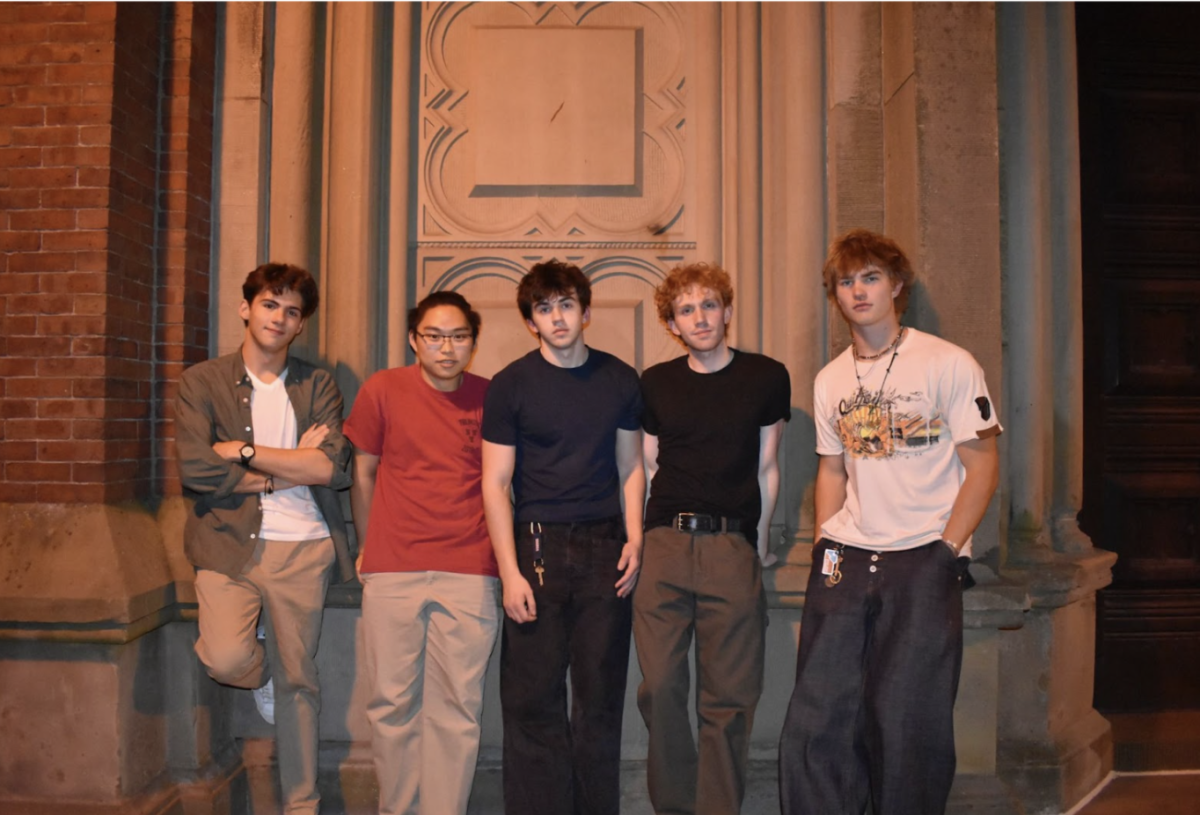On March 16, the English department, the Advisor to Students of Asian Descent (Karen Shih) and the Southeast Asian Students Association (SEASA) co-hosted poet and multimedia artist Diana Khoi Nguyen for two events, an afternoon poetry reading and an evening multi-genre workshop. First suggested by Professor Cindy Ok, a visiting lecturer in English, the event was funded using the Johanna Mankiewicz Davis Fund. The event was the culmination of a series of events for Asian Awareness Month, including other lectures and workshops, as well as performances and a zine project.
Born and raised in California, Nguyen currently teaches creative writing at Randolph College’s Low-Residency MFA and is also an assistant professor at the University of Pittsburgh. In her initial lecture she discussed and read from her debut poetry collection “Ghost Of,” published in 2018. Much of the work centered around her relationships with her family and herself following and intertwining with the life and then tragic loss of her younger brother. Her work touched on themes of connection, trauma, loss, family, abuse and immigration. Elements of her Vietnamese identity were interspersed throughout, from the bamboo shoots her parents planted around their house to the legacies of the war and how that impact differed among family members and each generation. Nguyen also shared multimedia projects, including a video of her making a collage, and a time lapse of her construction of a cardboard box, similar to those used in cremation, and then burning it after spending time lying in it.
The poetry reading was a packed event, with a lecture room full of students and faculty, while the workshop was more intimate. In the workshop, Nguyen led an analysis of images used to inspire poetry, and then encouraged students to find their own image to then write about.
In her own writing practice, Nguyen limits her writing time to a few weeks each year, preferring not to create while teaching, a process she has been following for over a decade. She describes it as “intense,” but also works with friends to help keep her accountable to her time frame.
Initially, Nguyen was not intending to become a poet. She found herself returning again and again to English classes that she loved. However it wasn’t until her mentor in college suggested she get an MFA that she began to consider poetry as something she could “seriously” engage with. Even when working in fields totally unrelated to literary work, she found herself writing poetry. After a few years working in tech, she eventually got her MFA, and turned her love of poetry into a career.
“I found myself never stopping the pursuit of poetry,” Nguyen said.
Nguyen’s work itself is full of references to her heritage, yet the inclusion of this identity had to be self-taught, as most of her education centered around European authors and their work.
“In my various kinds of schooling we learned a lot of craft … Because my instructors were predominantly white, and my peers were white students, I found myself really not having any markers of ethnic heritage or culture in the work … It wasn’t until when my brother died, it was like an earthquake happened in my body or my mind. I was like why am I using the guise of European cultural material and why don’t I just talk about Vietnamese people more directly …” Nguyen said. “I would say I’m a product of predominantly white writers, and I love the education that I got, I love the institutions where I went, to a point, right? But I also had to teach myself and find my own community. And that’s actually what’s nourishing me now, right? Not necessarily the kind of foundational aspects [of my education].”
While promoting and discussing her work at different schools, Nguyen has worked to connect specifically with Asian students, potentially to serve as the representation she wished she had.
“One thing that I’ve been doing more consciously is I try to connect with Asian Students Associations, Vietnamese Student Associations. I’m doing that in Pittsburgh, but when I travel I do try to connect with those communities as well, because sometimes the English department is so divorced from [them] because those student communities aren’t necessarily like predominantly English majors. So doing what I can to kind of outreach or just tap in, I think helps,” Nguyen said.
Alina Edwards ’25, a student who attended Nguyen’s poetry reading after hearing about it from Ok, said that although she doesn’t typically focus on poetry, she found herself connecting with Nguyen and her work.
“I thought she was excellent. She was really open and personable and charismatic and very down to earth. She had an incredible body of work that she presented, her readings as well as the videos that she made and shared with us and the collage type of artwork that she shared as well. All of it was incredible. Like the multimedia interaction between her poetry, her writing and her visual artistic interests … In order to connect with an artist I have to like their personality to some extent. And she was a wonderful speaker, wonderful performer, wonderful person to listen to,” Edwards said.
Edwards was excited to see an English department event being part of Asian Awareness Month, and is hopeful that more writers will be invited to perform and speak at the school.
“I would love to see more Asian American poets, fiction writers, any kind of writers at all, coming to the department, coming to the college … I didn’t know Diana’s work before this event, and I always want to learn about new authors that I should be following, or interested in that I can learn from,” Edwards said. “I feel like we really need to work to keep these visits, especially after the depression of COVID[-19] when nothing was happening. These halls weren’t really filled. We have to keep bringing people here and keep creating conversation and keeping it alive. And the way you do that is to bring people in[to] conversation.”







